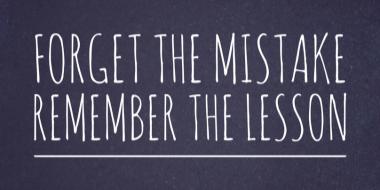Soft Skills for Resumes: A Comprehensive Guide
Soft skills are often overlooked, but they’re a powerful addition to a job application. These immeasurable abilities set you apart from other job seekers with similar qualifications. Hundreds of candidates might have three years of technical experience, but your expert teamwork and communication skills make you the perfect fit. This article explores the importance of choosing soft skills for resumes, as well as how to list them.

What are soft skills?
Soft skills are non-technical abilities that are transferable between many roles. They relate to how you get your work done, interact with others, and act in a professional setting. Common soft skills include communication, time management, problem-solving, and leadership.
What are soft skills compared to hard skills? Hard skills are role-specific, technical abilities, such as software proficiency or programming languages.
Traditionally, soft skills have been considered less important than hard skills, but modern opinions have changed considerably in the past years.
Increasingly more employers acknowledge the role that soft skills play in the ideal employee – 84% of employees and managers believe that new hires must possess strong soft skills and prominently display them during the hiring process. (1)
Why it’s important to list soft skills on resumes
Choosing the right soft skills for resumes is essential. These abilities contribute to the success of every job role – for example, sales managers have strong leadership skills, and editors have honed communication skills.
Let’s take a look at a few of the specific reasons why it’s vital to list soft skills on resumes:
They’re a deciding factor between similar candidates
During the hiring process, recruiters see hundreds of qualified candidates. They’re looking for a candidate with five years of experience, software proficiency, and a college degree, and they receive 50 applications that match the description. What’s a hiring manager to do?
Soft skills are an important deciding factor between similar candidates. Dozens of software developers have core hard skills and education, but employers need one who works well on a team and communicates complicated concepts in simple terms.
They display cultural alignment
Soft skills are a major part of cultural alignment. When you showcase your soft skills, you’re showing recruiters how you would contribute to the company’s culture and help it thrive.
For example, adaptability shows that you fit into a fast-paced culture, and integrity shows you align with a culture that values ethics and trust.
Soft skills are non-negotiable for some roles
Soft skills are important for all job roles, but for some they’re essential:
- Customer service representatives need communication and patience
- Sales professionals need communication and active listening
- Nurses need empathy and compassion
- HR professionals need relationship-building and mediating skills
For these roles, soft skills aren’t simply a deciding factor, they’re non-negotiable and just as important as hard skills.
For more examples of which skills are important for unique job roles, check out our resume examples.
Expert Tip:
Top soft skills: What employers are looking for
Soft skills are driving the modern hiring process. Employers are looking for soft skills because they make professionals better at long-established roles, enable easy career switching, and build better cultures.
Here are some in-demand soft skills resumes must have:
- Communication
- Time management
- Curiosity
- Agility
- Organization
- Leadership
- Patience
- Empathy
- Emotional intelligence
- Innovation
- Reliability
- Critical thinking
- Problem-solving
- Attention to detail
Soft, transferable skills are gaining popularity as employers adapt skills-based mindsets. Many recruiters realize that with the right soft skills, professionals with atypical backgrounds can excel in varied roles. This means that a retail associate can use their communication, patience, and organization skills to excel in a customer service call center role.
This idea expands the talent pool for employers, so they can access more great employees.
“84% of employees and managers believe that new hires must possess strong soft skills and prominently display them during the hiring process.”
Choosing the right soft skills to put on resumes
So how do pick the perfect soft skills for resumes? You have limited space on your resume, so you have to consider your soft skills carefully and critically.
Let’s take a look at a few job roles and their essential soft skills to help you choose:
Role | Common Soft Skill |
|---|---|
Receptionist | Communication, Organization and planning, Active listening, Time management |
Accountant | Attention to detail, Critical thinking, Problem-solving |
Nurse | Empathy, Compassion, Teamwork, Time management |
Sales professional | Communication, Active listening, Relationship building, Organization |
Programmer | Teamwork, Communication, Adaptability, Critical thinking |
Remember that every role is different, so it’s important to not only check the job description for soft skills but also look into the company to read about their top cultural values.
Interested in more helpful tips to make your resume stand out? Browse our collection of resume articles to learn how to optimize your resume to the fullest.
How to effectively showcase soft skills on a resume
You know how important your soft skills are, so now you need to seamlessly work them into your resume.
We recommend thoroughly looking through the job description you’re targeting to learn the exact terminology the employer uses. Soft skills are intangible concepts and can have many names. For example, some employers use “active listening” while others simply consider this skill to be a part of communication.
This practice not only aligns you better with an employer, but it’s also a key step in creating an ATS resume. A resume capable of getting past applicant tracking systems (ATS) must include certain keywords so the software picks it out.
We also recommend placing your soft skills in their own section if you have enough of them or the role places great importance on them. You want the hiring manager to find what they’re looking for with just a quick scan.
You can try this tactic out today by grabbing one of our resume templates – it’s quick and easy to add separate sections for both soft skills and hard skills.
Soft skills for resumes: Common mistakes
Ready to send off your soft skills resume? Wait one more minute – look over these common mistakes to ensure you’re in the clear:
Mistake | Solution |
|---|---|
Downplaying their importance | Look up other professionals in roles similar to yours and see which soft skills they rely on |
Listing hard skills as soft skills or vice versa | Double-check the skills you list as soft skills with a quick internet search |
Including too many or too few skills | Include 5 to 10 skills as a basic rule. Most roles have hard skills outnumber soft skills, but critically examine yours to determine your ratio |
Soft Skills for Resumes: Stand Out With People Skills
All roles require soft skills, but it’s more than that – all job seekers have soft skills, whether or not they know it. Can you manage a hectic workload? You have great organizational skills. Can you motivate and guide others? That means you have keen leadership abilities.
You have in-demand soft skills, so it’s high time you showed employers and landed your dream job. Just follow our top tips:
- Check the desired soft skills in the job description
- Consider company culture
- Place more importance on soft skills if you’re in a role that interacts with many people
- Lead with soft, transferable skills if you’re switching careers
One last tip: Realize your soft skills aren’t set in stone. Adopt a mindset of continuous learning and commit to growing your soft skills so you’re always improving yourself.
Let’s use these tips and build a winning soft skills resume. Hop over to CVwizard’s Resume Builder and create a resume that has a custom emphasis on soft skills.
Sources:
(1) Business Name Generator, March 5, 2024: The Future of Soft Skills in the Workplace
Make an impression with your resume
Create and download a professional resume quickly and easily



